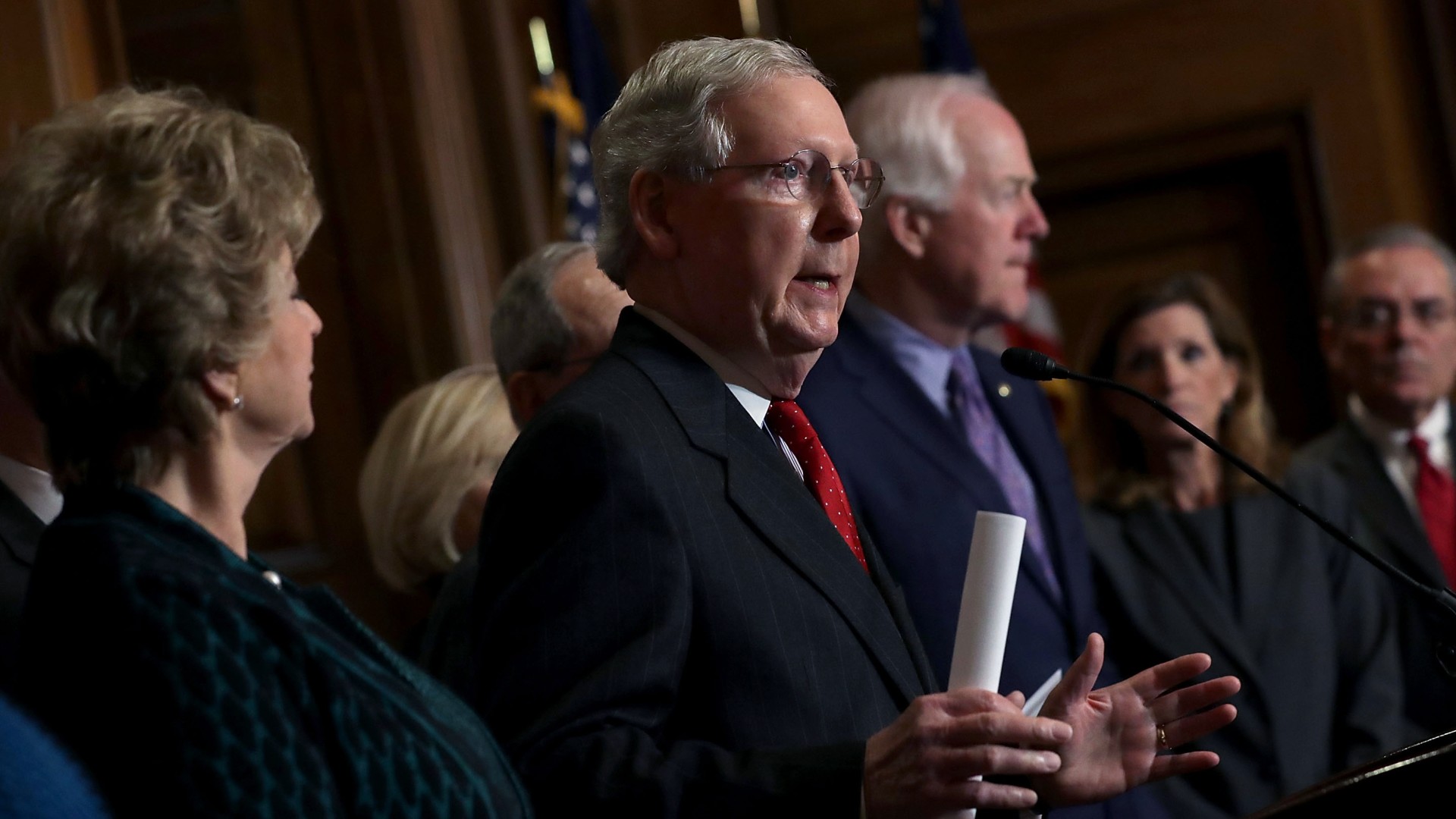Now that the Senate and the House of Representatives have passed their own tax reform bills, it’s up to Congressional Republican leaders to bridge the gap between the two proposals in conference committee.Although similar negotiations between the chambers killed off the GOP attempt to kill Obamacare, the prospects look much rosier for tax reform. That’s because the two bills actually aren’t that different, and the Republicans really only have to hammer out the finer points of the legislation.“It should be quite possible to get an agreement,” Mark Mazur, director of the Brookings Institution’s Tax Policy Center and an assistant secretary for tax policy in the Treasury Department under President Obama, told VICE News. “They have broad outlines that they agree on. It’s just a matter of going through details.”That doesn’t mean there aren’t major issues to hammer out, and the policy impact of these negotiations are quite significant. Affected provisions include changes to health care, education funding, and corporate tax rates that could sway billions of dollars in revenue for a tax bill that the Congressional Joint Committee on Taxation says will ultimately cost over $1 trillion.Here’s a rundown of some key issues left on the table:The Senate bill includes a provision that would repeal the Affordable Care Act’s individual mandate to buy health insurance, a key provision of Obamacare that the Republicans failed to repeal when their own healthcare bill failed. The Congressional Budget Office estimated in November that this would result in 13 million people losing their insurance. Though the House didn’t include this in their plan, it is expected that this will end up in the final legislation.The tax deduction for medical expenses would also be eliminated in the House bill, which was used by about 9 million filers last year, according to the Internal Revenue Service. And because the cost of tax reform is so high, in both the House and Senate bills, triggers that could cut Medicare by about $25 billion, to reduce the deficit, may take effect in 2018. For corporations and high-income individuals, the alternative minimum tax is basically a tax floor on what they are allowed to pay. Just before the Senate bill was passed on Friday, legislators revealed that they decided not to repeal the AMT as was previously expected (and as was done in the House bill).Instead, the corporate AMT will remain at 20 percent, in what is widely viewed as a compromise to give lawmakers more latitude to cut taxes elsewhere. The problem, however, is that because Republicans are expected to lower the corporate tax rate to somewhere between 20 and 22 percent, corporations will lose out tax credits (like the R&D credit) that would otherwise put them below the 20 percent AMT rate.“You would do this if you want to get rid of the R&D tax credit,” said Jacob Leibenluft, a senior advisor at the Center for Budget and Policy Priorities and former Obama tax policy adviser. “Or if you just didn’t think about it carefully. I think this was the latter.”Both GOP proposals would dramatically impact the education system, but the House bill has specific language and more provisions dealing with education matters at both the K-12 and university level.Although there are some giveaways to individual legislators, the House bill is replete with specific changes to the way higher education is funded. It strips tax deductions for graduate students’ tuition and taxes the value of tuition discounts afforded to the family of higher education employees. These might not make it into a final compromise bill.
For corporations and high-income individuals, the alternative minimum tax is basically a tax floor on what they are allowed to pay. Just before the Senate bill was passed on Friday, legislators revealed that they decided not to repeal the AMT as was previously expected (and as was done in the House bill).Instead, the corporate AMT will remain at 20 percent, in what is widely viewed as a compromise to give lawmakers more latitude to cut taxes elsewhere. The problem, however, is that because Republicans are expected to lower the corporate tax rate to somewhere between 20 and 22 percent, corporations will lose out tax credits (like the R&D credit) that would otherwise put them below the 20 percent AMT rate.“You would do this if you want to get rid of the R&D tax credit,” said Jacob Leibenluft, a senior advisor at the Center for Budget and Policy Priorities and former Obama tax policy adviser. “Or if you just didn’t think about it carefully. I think this was the latter.”Both GOP proposals would dramatically impact the education system, but the House bill has specific language and more provisions dealing with education matters at both the K-12 and university level.Although there are some giveaways to individual legislators, the House bill is replete with specific changes to the way higher education is funded. It strips tax deductions for graduate students’ tuition and taxes the value of tuition discounts afforded to the family of higher education employees. These might not make it into a final compromise bill. But the Senate bill and the House bill both include significant new taxes on university endowments (the House’s proposal is more punishing than the Senate’s), and they eliminate state and local tax deductions from federal tax filings, which Leibenluft says is an effort to put “downstream” pressure on state budgets, forcing them to make education cuts.“You could argue the Senate bill puts pressure to reduce funding for public education, and provides tax breaks for high-income families and private education,” Leibenluft said.Though the estate tax (also called an inheritance tax) only affects about 10,000 very wealthy Americans, eliminating it has been a Republican policy goal for years. The House bill calls for repealing it entirely, while the Senate bill calls for doubling the exemption limit from $11 million to $22 million.It’s not clear which approach will win out yet, but Republicans are holding pat on doing something to alleviate the tax burden on America’s wealthiest inheritors.“The government shouldn’t seize the fruits of someone’s lifetime of labor after they die,” Iowa Sen. Chuck Grassley told the Des Moines Register on Monday. “The question is one of basic fairness, and working to create a tax code that doesn’t penalize frugality, saving and investment.”
But the Senate bill and the House bill both include significant new taxes on university endowments (the House’s proposal is more punishing than the Senate’s), and they eliminate state and local tax deductions from federal tax filings, which Leibenluft says is an effort to put “downstream” pressure on state budgets, forcing them to make education cuts.“You could argue the Senate bill puts pressure to reduce funding for public education, and provides tax breaks for high-income families and private education,” Leibenluft said.Though the estate tax (also called an inheritance tax) only affects about 10,000 very wealthy Americans, eliminating it has been a Republican policy goal for years. The House bill calls for repealing it entirely, while the Senate bill calls for doubling the exemption limit from $11 million to $22 million.It’s not clear which approach will win out yet, but Republicans are holding pat on doing something to alleviate the tax burden on America’s wealthiest inheritors.“The government shouldn’t seize the fruits of someone’s lifetime of labor after they die,” Iowa Sen. Chuck Grassley told the Des Moines Register on Monday. “The question is one of basic fairness, and working to create a tax code that doesn’t penalize frugality, saving and investment.”
Advertisement
Healthcare costs
Advertisement

The alternative minimum tax
Giant tax hikes on higher education
Advertisement
